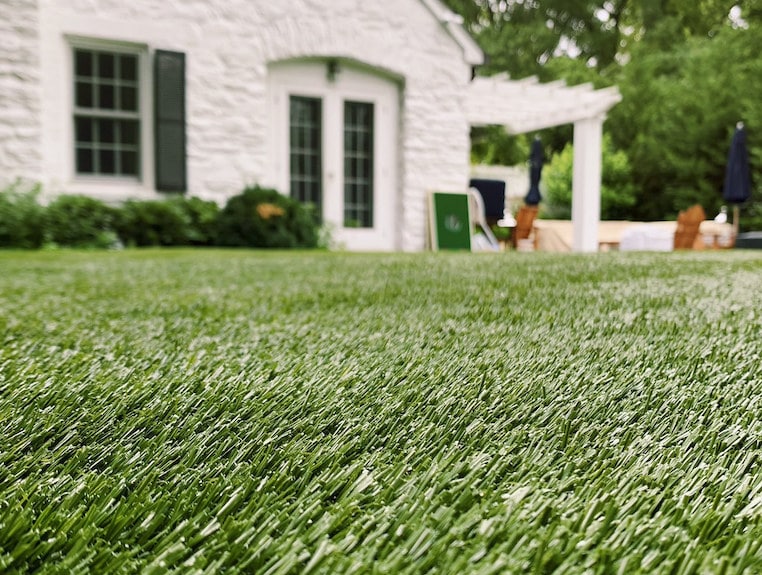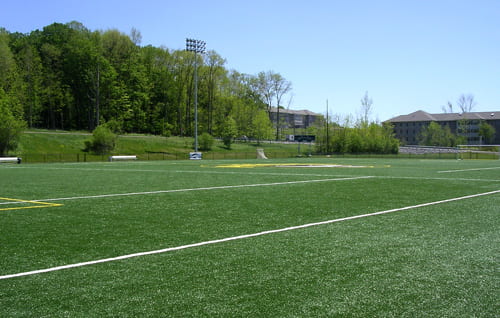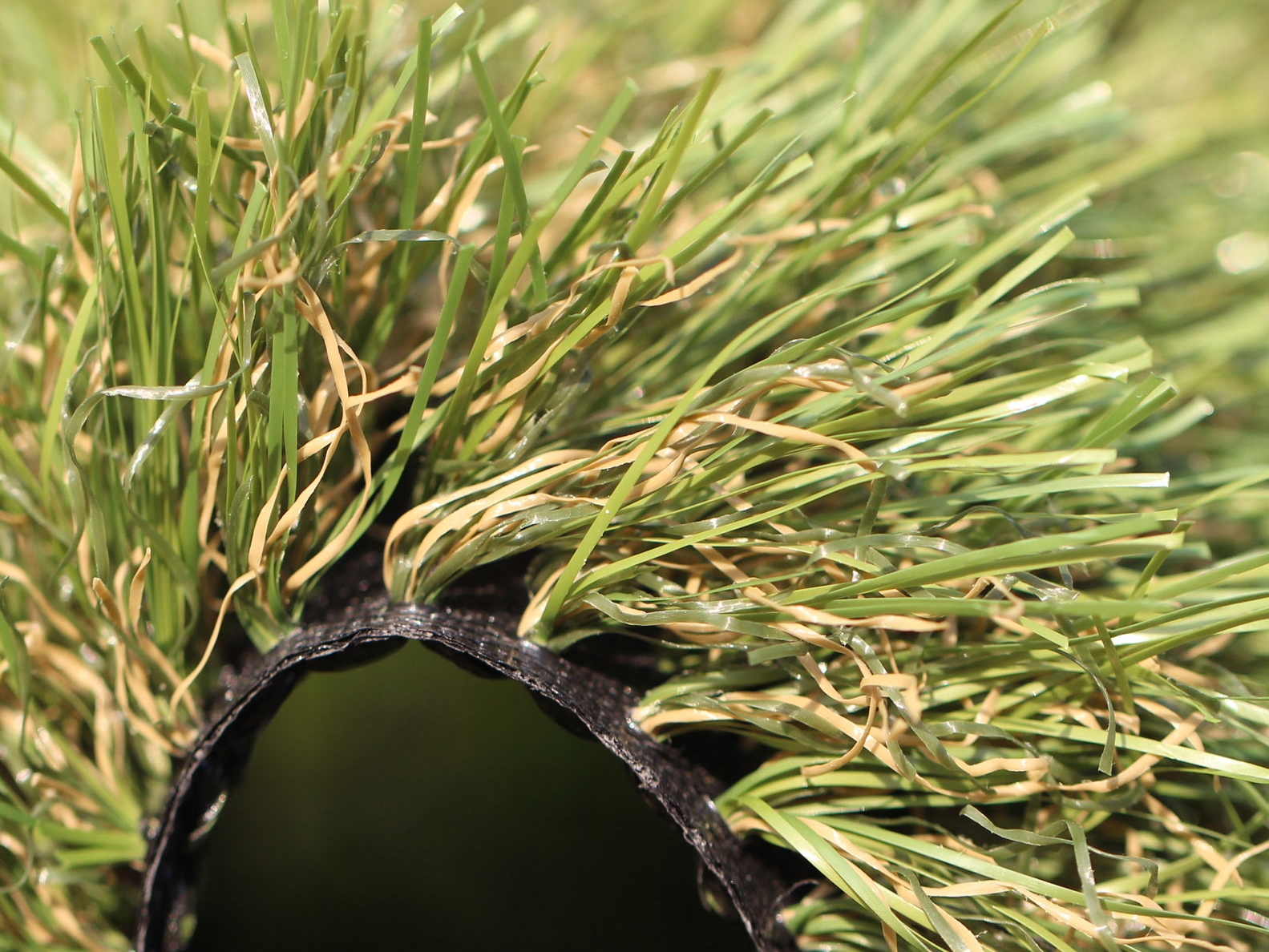Top-Grade Arizona Turf Options for a Attractive and Green Landscape
Top-Grade Arizona Turf Options for a Attractive and Green Landscape
Blog Article
Delve Into the Environmental Perks of Opting for Synthetic Grass Solutions
The fostering of synthetic lawn options presents a compelling opportunity to attend to pressing environmental obstacles. By substantially reducing water use and minimizing the application of harmful chemicals, these choices not only advertise sustainable landscaping yet likewise secure local environments.
Water Conservation Conveniences
One of one of the most considerable advantages of man-made lawn is its ability to preserve water. Standard lawn yards require substantial watering, specifically in locations prone to dry spell or water constraints. In contrast, synthetic grass does not need watering, considerably minimizing the general need for water resources. This feature is particularly useful in deserts where water deficiency is a pressing problem.
By removing the requirement for normal watering, synthetic grass adds to sustainable landscape techniques and assists reduce the ecological impact of too much water usage. Additionally, the preservation of water includes the decrease of runoff, which can bring about soil disintegration and waterway pollution.
Additionally, the installment of man-made lawn enables property owners and communities to designate water resources a lot more effectively, focusing on vital uses such as drinking water and agriculture. The shift towards synthetic grass not only promotes accountable water use but also lines up with wider ecological objectives intended at protecting all-natural resources.
As neighborhoods significantly focus on sustainability, the water conservation advantages of synthetic turf provide a compelling situation for its adoption in household and industrial landscaping jobs.
Lowered Chemical Usage
The shift to synthetic grass considerably decreases the dependence on chemical therapies generally used in natural yard maintenance. Typical grass administration commonly involves the application of pesticides, plant foods, and herbicides to promote development and control insects. These chemicals can present threats to human wellness, local wild animals, and the environment, adding to soil and water contamination.
In comparison, synthetic grass removes the need for these harmful compounds. By lessening the launch of artificial compounds into the ecological community, fabricated grass advertises much healthier dirt and water systems.
In addition, the lack of chemical drainage related to artificial lawn installations aids protect local rivers from contamination, supporting aquatic life and maintaining biodiversity. Arizona artificial turf. As areas progressively focus on sustainable practices, going with synthetic grass presents a practical service that aligns with environmental preservation goals. Through this change, homeowner can take pleasure in lavish environment-friendly rooms without jeopardizing ecological health and wellness, leading the way for an extra lasting future
Lower Carbon Impact

Furthermore, the installation of fabricated lawn can cause substantial water preservation. Natural grass require substantial amounts of water for irrigation, which not only includes to the carbon footprint related to water extraction and therapy yet also stress local water sources. In comparison, synthetic turf needs minimal maintenance, needing no watering, therefore considerably minimizing water usage and its linked power costs.
In addition, the durability of fabricated grass adds to its reduced carbon influence. With a life-span of up to 15 years or more, the demand for regular substitutes is decreased, leading to less waste and reduced power intake in production and getting rid of conventional grass options. On the whole, fabricated grass provides a lasting alternative for environmentally aware landscaping.
Habitat Conservation
Environment preservation is a critical factor to consider in the discussion over landscaping options, particularly when comparing synthetic grass to all-natural turf. Natural yard yards commonly require comprehensive maintenance, consisting of using pesticides, herbicides, and plant foods, which can adversely influence regional environments. These chemicals can leach into the soil and waterways, damaging Arizona turf indigenous vegetation and animals and interrupting regional habitats.
On the other hand, synthetic lawn presents a chance to lower the environmental impact of landscape design. By choosing synthetic yard, house owners can minimize the interruption of natural habitats associated with traditional grass treatment methods. Synthetic grass eliminates the demand for damaging chemicals, thus securing neighboring wildlife and keeping the integrity of bordering ecosystems. Moreover, the installment of synthetic grass can bring about the conversion of former lawn areas into more biodiverse landscapes, such as pollinator gardens or indigenous plant locations, which can sustain neighborhood wild animals.
Eventually, the shift to fabricated grass not just preserves water and decreases upkeep efforts however additionally promotes a much more harmonious relationship in between human tasks and the all-natural atmosphere, promoting habitat preservation at the same time.
Long-Term Sustainability
Long-term sustainability is an essential element in examining the advantages of synthetic grass over typical yard yards. One of one of the most substantial benefits of synthetic grass is its toughness; it can last approximately 15-20 years with minimal upkeep, whereas natural grass calls for constant reseeding and substitute. This durability decreases the demand for consistent sources, such as water, plant foods, and pesticides, which are vital for maintaining a healthy and balanced turf yard.
In addition, synthetic grass adds to a decrease in carbon exhausts related to grass care devices. Standard yards commonly call for gas-powered lawn mowers, leaners, and blowers, all of which contribute to air pollution. Arizona artificial turf. In contrast, synthetic grass gets rid of the need for such devices, promoting a cleaner atmosphere
Furthermore, the production of synthetic grass progressively uses recycled materials, improving its sustainability account. As manufacturers adopt environmentally friendly methods, the ecological impact of artificial grass proceeds to lessen.

Verdict
The fostering of man-made lawn solutions offers considerable environmental benefits, including considerable water preservation, minimized reliance on hazardous chemicals, and a lower carbon impact. Man-made turf help in protecting natural environments by reducing land disturbance and advertising long-term sustainability via the use of sturdy products. Collectively, these aspects highlight the potential of artificial turf to add favorably to environmental wellness and provide a feasible alternative to traditional landscape design practices in a progressively resource-conscious globe.
In comparison, artificial turf does not need watering, substantially lowering the total demand for water sources. By lessening the release of artificial compounds right into the community, fabricated grass promotes much healthier soil and water systems.
Additionally, the installment of synthetic lawn can result in significant water Get the facts preservation. In contrast, synthetic turf requires minimal upkeep, needing no watering, thus substantially reducing water usage and its connected energy expenses.

Report this page